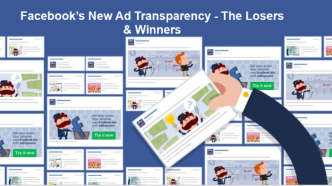
Whenever the digital marketing experts come across the word “artificial intelligence”, they instantaneously think of “RankBrain” algorithm. Launched in 2015 by Google, RankBrain is a machine learning artificial intelligence system which determines the most suitable search engine results for the queries raised by the users.
What happens when you enter any query on Google? It gives a direct answer. Moreover, it also offers a set of parallel questions that people usually enter on Google. The exact return of the answer along with a set of parallel questions is the result of artificial intelligence.
Google is constantly mimicking human intelligence to feed the answers into the huge database.
In the following paragraphs, we are going to explore how artificial intelligence will impact the world of digital marketing and search engine optimization in the coming years.
#1 Allows Target Marketing
Thanks to artificial intelligence and machine learning, advertising these days is based on insight backed by intelligence. Digital marketing agency can now leverage advanced technology to gather and examine massive amounts of customer data to come with an effective set of predictive strategies. These methodologies can, in turn, be used at every level of your marketing campaign, creating ‘smart ads’ that are customized to search queries. In comparison to pre-AI strategies that were based on IP-address-based assumptions, these AI-powered strategies are miles ahead in predicting consumer behavior.
#2 Better Return on Investment
Application of AI and Machine Learning is now making it simpler for marketers to recognize commonalities and trends in consumer behavior. The use of AI in facilitates in digital marketing company multi-layered strategies that automatically create messages personalized to each user. It ensures that customers receive the precise triggers at the right time, leading them to the next step of the buying journey.
#3 Smoother Search Sessions
With AI-infused digital marketing search engines and processes have become smarter. AI can efficiently track search queries, purchase patterns, online behavior and navigation processes, producing highly precise results for every search query. In fact, it also helps in predicting keywords and allows Latent Semantic Indexing, which means creating keywords that are semantically relevant to your main keyword, making more appropriate search results possible.
#4 Personalized User Experience
Most websites now offer a chat interface that lets customers to chat directly with a customer care representative. Unquestionably, it gives a touch of personalization, but it’s time to upgrade these customary interactions to AI-powered catboats. Why? Since, unlike chatting with human beings, catboats never lose patience. Your customers may sometimes become a nightmare, but bots will treat them with supreme courtesy. Further, they are available 24*7 and can manage several customer queries simultaneously.



